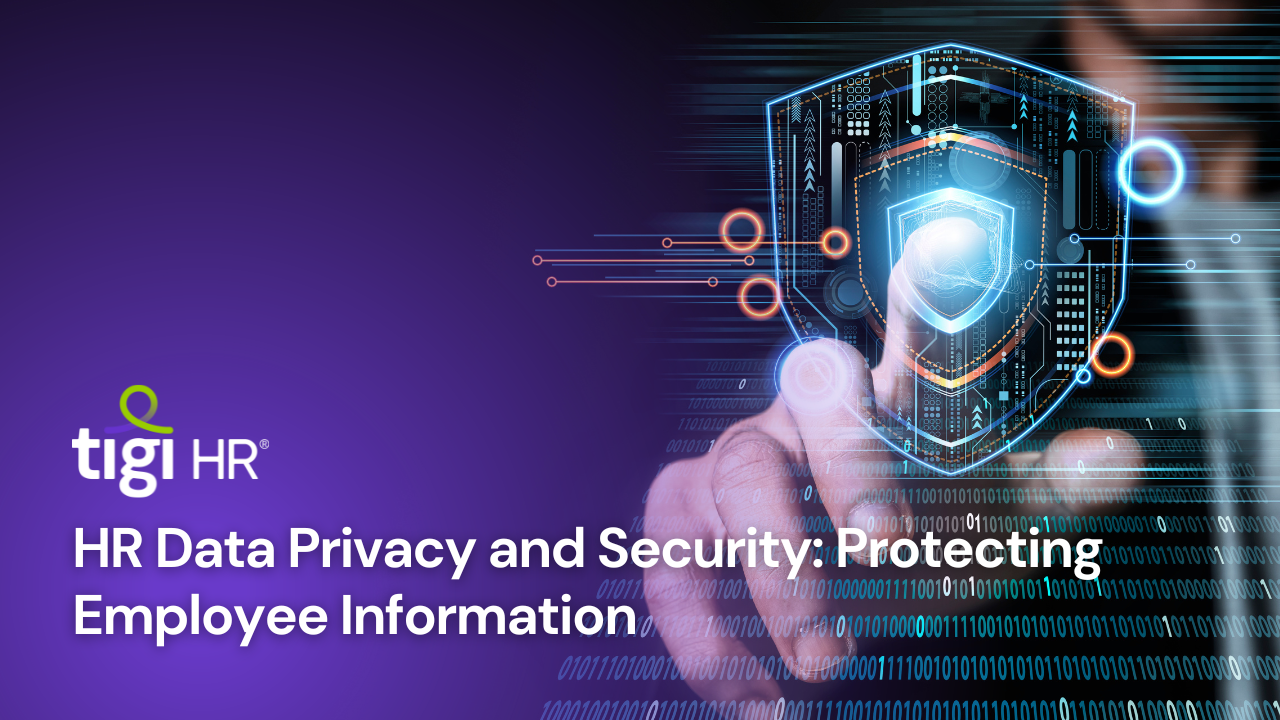In the era of digital transformation, the HR department has undergone a profound shift in the way it manages and safeguards employee data. With an abundance of sensitive information at their fingertips, HR professionals play a pivotal role in upholding the privacy and security of this data, ensuring the trust and well-being of employees are not compromised.
The Digital Landscape of HR Data
The rapid integration of technology has given rise to numerous advantages in HR management, from streamlined recruitment processes to data-driven decision-making. Nevertheless, these digital advancements have also ushered in new challenges concerning data privacy and security.
Regulatory Complexity: The global landscape of data protection regulations is complex, with laws like the GDPR, CCPA, and various industry-specific regulations. Navigating these regulations requires diligence and a commitment to compliance.
Data Proliferation: HR data is vast and varied, encompassing personal, financial, and medical records, as well as performance evaluations. The proliferation of this data across digital platforms increases the potential risk of breaches.
Employee Expectations: In the digital age, employees expect their personal information to be handled with the utmost care and responsibility. Any breach of trust can lead to a decrease in employee morale and job satisfaction.
Strategies for Safeguarding Employee Data
Effectively protecting HR data involves a combination of technological solutions, policies, and employee education. Here are strategies to secure employee information in the digital age:
Data Encryption: Employ encryption techniques to protect data both at rest and in transit. Encryption ensures that even if data is compromised, it remains unreadable to unauthorized individuals.
Access Controls: Implement strict access controls to restrict data access to authorized personnel only. Define clear roles and permissions, granting access on a need-to-know basis.
Regular Auditing: Conduct routine data security audits and assessments to identify vulnerabilities, rectify weaknesses, and ensure compliance with data protection regulations.
Employee Training: Continuously educate HR staff and employees on data security best practices. This includes recognizing phishing attempts, adhering to strong password protocols, and understanding the importance of data privacy.
Incident Response Plan: Develop a comprehensive incident response plan that outlines steps to take in case of a data breach. A well-prepared response can mitigate damage and protect affected individuals.
Secure HR Software: Utilize HR software with built-in security features and regular updates to address vulnerabilities. Choosing the right software is crucial in maintaining data integrity.
Privacy by Design
To take data protection a step further, adopt a “privacy by design” approach. This means incorporating privacy considerations into every aspect of HR data management, from data collection to disposal. Regular privacy impact assessments can help identify and mitigate risks associated with data processing.
Conclusion
In an age of digitalization, HR data privacy and security have become paramount. Safeguarding employee information is not only a legal requirement but also an ethical responsibility that contributes to an organization’s reputation and the well-being of its workforce. By investing in robust data protection measures, ongoing training, and a proactive approach to privacy, organizations can create a culture of trust and security in the workplace. This approach not only protects the organization but also upholds the vital trust between employees and the HR department. In the digital age, securing HR data is not an option; it’s a necessity.
Effective Strategies for Talent Pipelining
In the competitive job market, talent pipelining stands out as a proactive strategy. This approach involves cultivating a pool of potential candidates for future roles, enhancing an organization’s agility in recruitment. By focusing on building relationships, creating a candidate database, and investing in skills development, talent pipelining ensures a continuous flow of quality hires. This approach not only reduces hiring time but also strengthens employer branding, making it a vital strategy for future success.
Find trusted recruitment agencies : Click here





